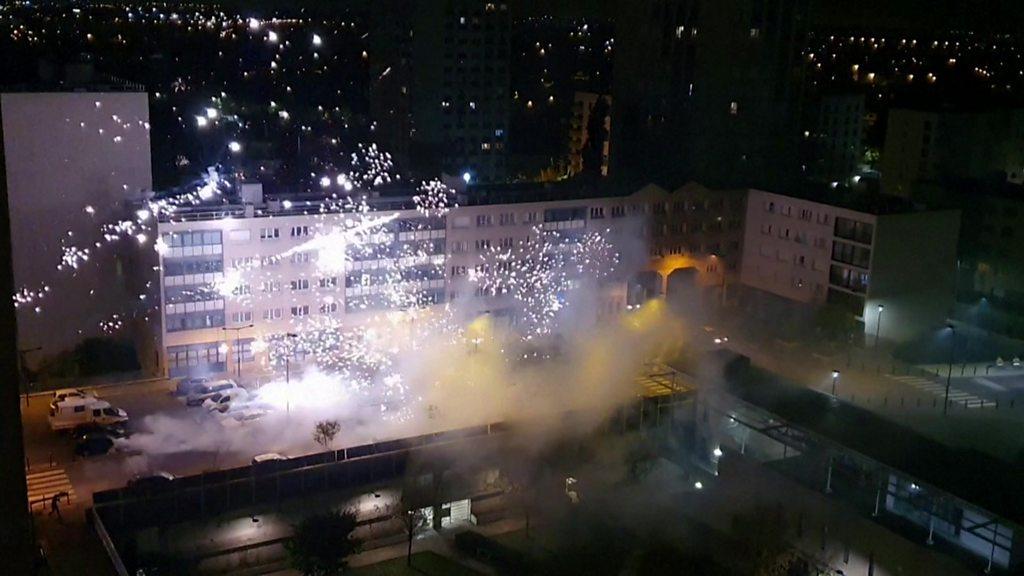Under deadly attack French police demand better protection
- Published
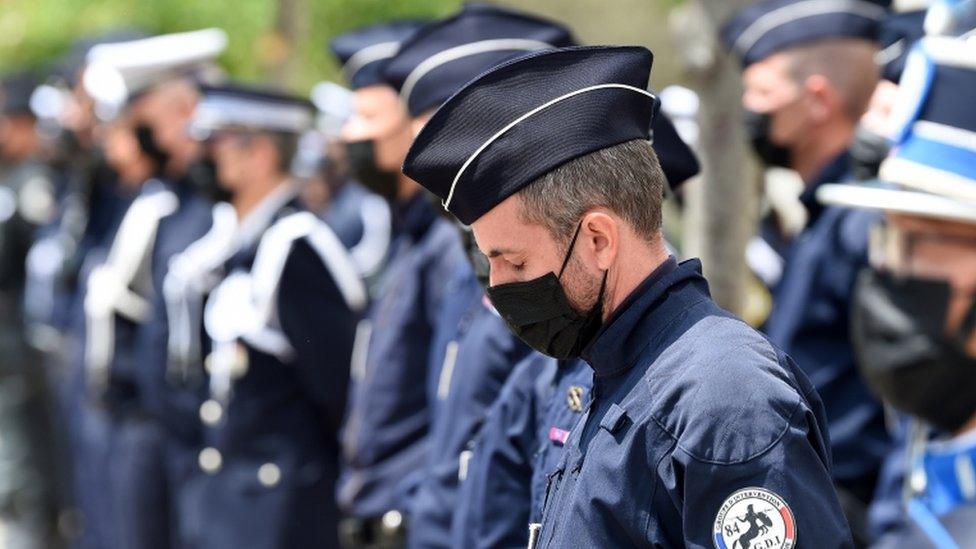
French police mourn a fellow officer killed earlier this month
Police officers gathered outside France's National Assembly make for a powerful image: the proximity of security and politics, made real on the banks of the Seine.
Often criticised for overly aggressive tactics during protests, French police come here on Wednesday as protesters themselves, calling for a tougher response to the aggression security forces face.
Within the past month, a policeman was killed during an anti-drugs operation, and a policewoman was stabbed to death in a targeted attack. "It was the straw that broke the camel's back," said Stanislas Gaudon, head of the Alliance police union. "It was something we were afraid of, almost expecting."
'It's a daily thing being attacked'
Many officers say they have little faith in the justice system to put criminals behind bars, and end up arresting the same faces time after time. That's even harder to stomach, they say, when the victim is a colleague.
A key demand for protesters is the introduction of a minimum sentence for anyone who attacks the police.

Recent deadly attacks on French police
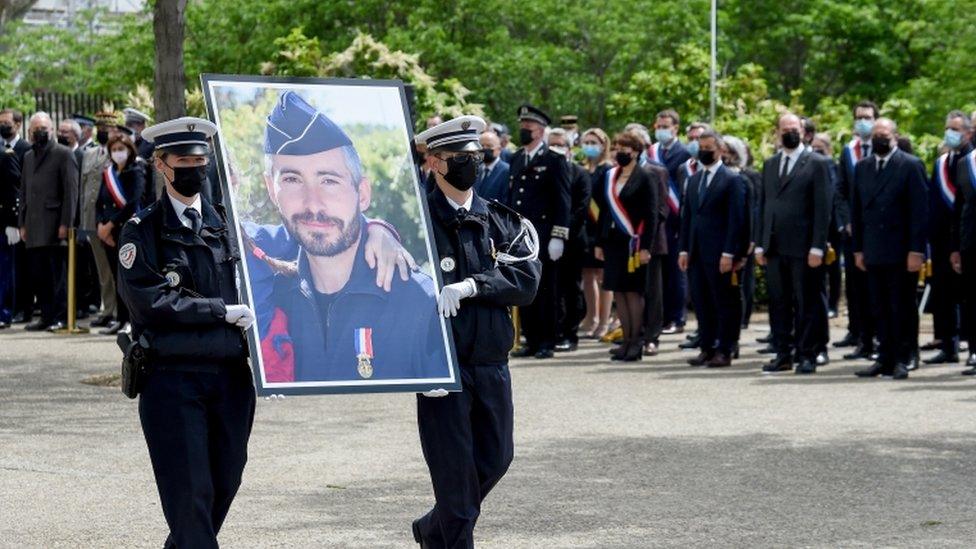
Police officer Éric Masson was killed while on duty
May 2021: Officer Éric Masson shot dead in anti-drugs raid in Avignon
April 2021: Police employee Stéphanie Monfermé stabbed to death in what prosecutors described as Islamist terrorist attack
December 2020: Gunman shot dead three police officers responding to domestic violence incident in central France
October 2019: Police computer operator stabbed four colleagues to death at Paris police headquarters, before being shot dead. Anti-terror prosecutors said he adhered to a radical version of Islam
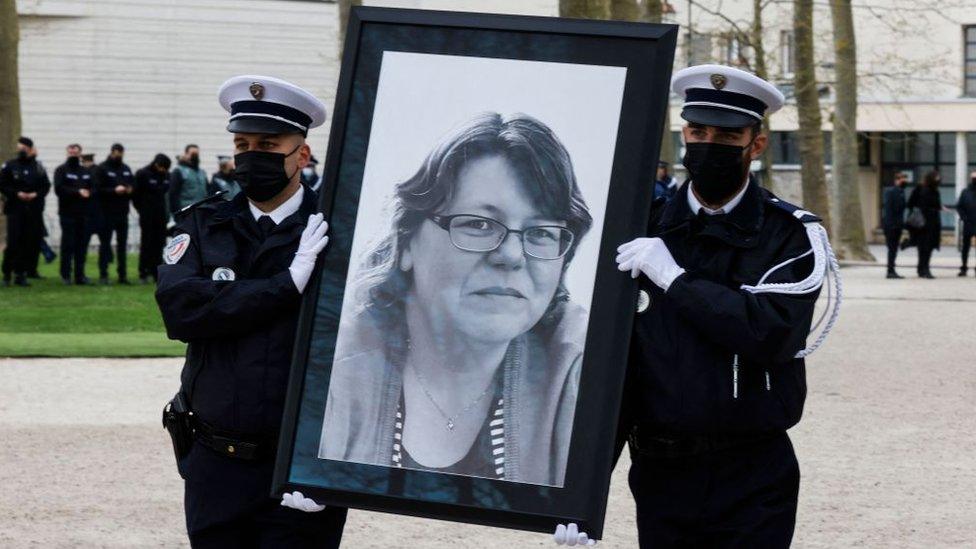
Stéphanie Monfermé died in an attack on the police station at Rambouillet last month

In fact, there are far fewer police deaths now than there were in the 1980s. But what is new, says Loïc Walder, spokesman for the Unsa police union, is a more general low-level aggression.
"Today, it's not [just] about being killed, it's more that it's a daily thing to be attacked," he told me. "Every night there are police handling some riot situation. That was not happening a few years ago. Now, if you go on patrol as a police officer, you know you're going to be attacked."
Gaudon says that 18 police officers are injured every day during neighbourhood patrols, ID checks or traffic controls. The number is rising, he says, and the offenders are getting younger.
But the sense of a police force under attack has appeared alongside a toughening of police tactics and more physical protection over the past decade.
"When you worked with police officers 20 years ago, no-one said he was afraid," says sociologist Christian Mouhanna. "The idea was to be very male, very strong. No-one wore a bullet-proof vest. Now they're all wearing them, and they're very afraid of being killed."
A police station near Paris was attacked with fireworks in October
At the same time, says Mr Mouhanna, community policing has gradually been replaced by a focus on crime statistics and control.
"We had good policing of demonstrations and bad policing in the banlieue [suburbs]," he told me. "You might think good [practices] would take over from bad, but actually the reverse happened. The riot police began to take on more aggressive habits, and the policing model used inside the banlieue was brought into the centre of French cities."
Challenged by the yellow-vests
Mr Mouhanna believes the change was exacerbated after the terrorist attacks in 2015 when police were mentally focused on counter-terrorism, and it was especially shocking for those who came from small towns across France to join the spontaneous gilets jaunes protests in 2018.
"It was very strange for people from the lower-middle class, who were not from ethnic minorities," he explained. "They thought the police were with them, and they were very upset to be confronted with an aggressive police force."
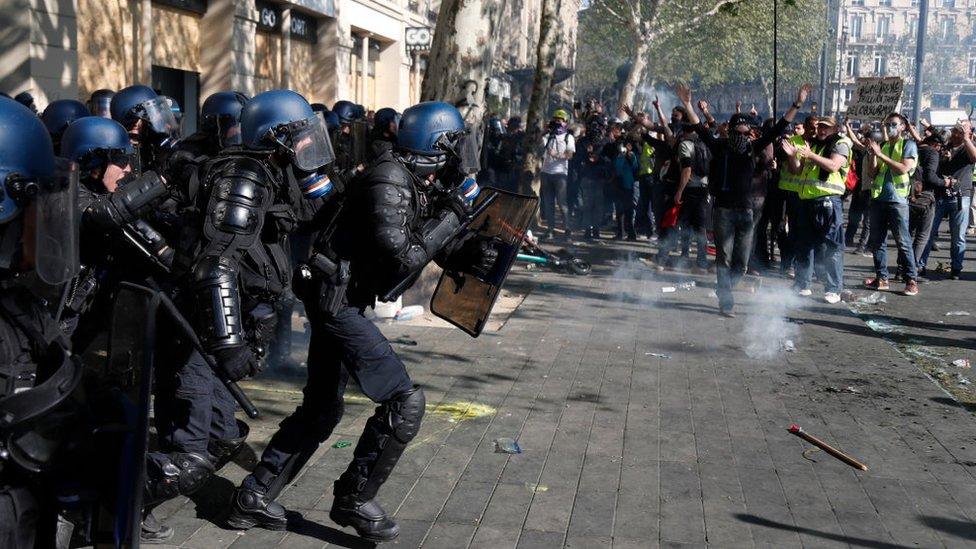
The gilets jaunes protests first began in 2018
Fabien Jobard, author of Politiques du désordre (Politics of Disorder), said police and intelligence services had been taken by surprise by the yellow-vest protests.
"If there's one institution that doesn't like to be surprised, it's the police," he said. "My conviction is that the way the movement was treated by the police, revived and maintained it; it became a movement against police violence."
But police representatives reject accusations that hardening tactics have damaged their public image.
"When you hear that in two years of gilets jaunes protests the police created a divorce in society, it's a bit too easy," said Stanislas Gaudon from the Alliance police union.
"When we look at how many weapons we seized [from demonstrators], it's clear that a lot of people didn't really come to protest, but to kill cops."
Shocking cases of police brutality
Others say it's not just police tactics that are the problem, but the behaviour of individual officers.
Last November, a security camera captured images of white police officers beating black music producer Michel Zecler inside his Paris studio. Three officers are now facing charges of racially aggravated violence.
In the past five years there have been two other big cases: the arrest of 22-year-old Théo Luhaka, who was left permanently disabled when his sphincter was ruptured by a police baton; and that of Adama Traoré, 24, whose death in custody after a simply identity check triggered widespread protests.
Despite anger over police tactics, behaviour and a perceived culture of impunity, a recent poll suggested that almost 70% of the French population trust the police, only slightly lower than in the UK.
Voters also report growing concerns over lawlessness and insecurity in France.
Macron's political problem over security
President Emmanuel Macron has promised to recruit an extra 10,000 officers, and his government has brought in a controversial new security law, giving more power to private security firms and criminalising the identification of police officers taking part in an operation with the intent to harm them.
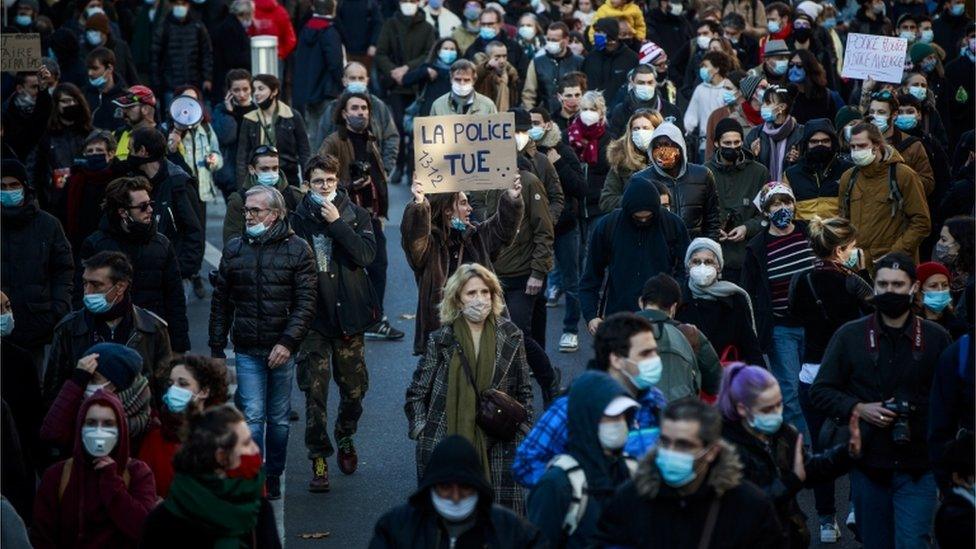
'The police kill' reads one sign at a protest against the new security law last year
But, a year away from presidential elections here, polls suggest that on security issues voters trust far-right leader Marine Le Pen much more than President Macron.
She's also seen as having strong support within the police.
One reason, perhaps, why Mr Macron's hard-line Interior Minister, Gérald Darmanin, will be joining the police outside parliament today. And also why he won't be alone: Marine Le Pen's deputy, Jordan Bardella, has also said he's joining the protest.
When it comes to the politics of security, neither man is afraid of a tough approach, whether the goal is fewer crimes or more votes.
Related topics
- Published23 April 2021
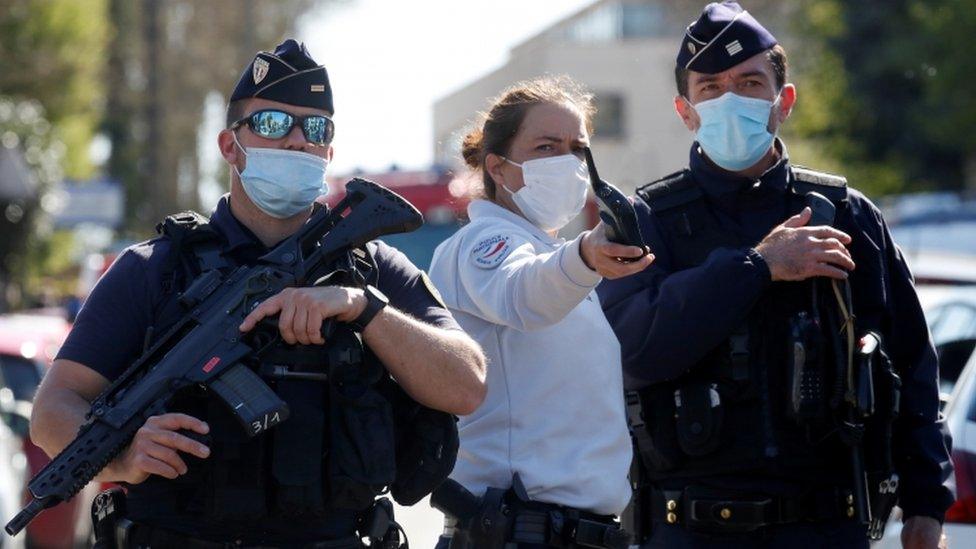
- Published23 December 2020
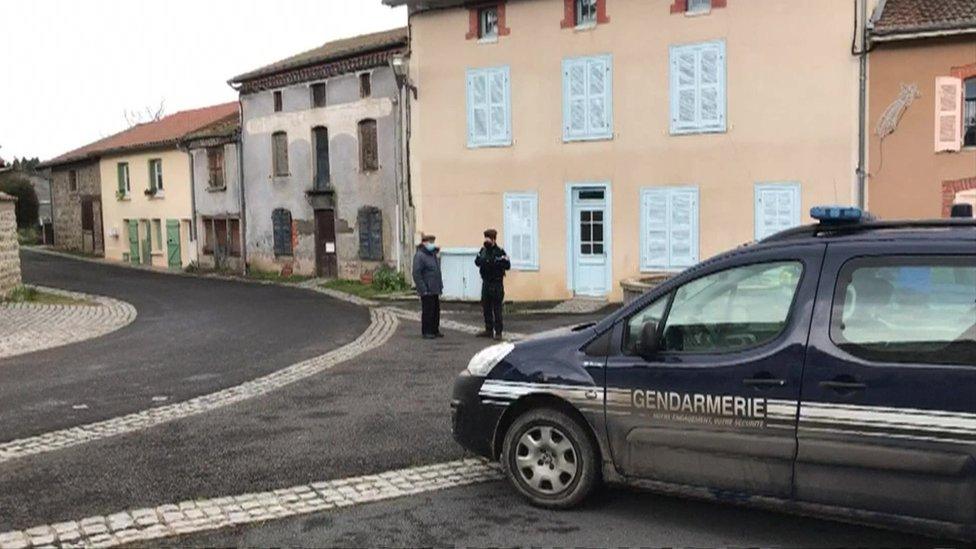
- Published11 October 2020
